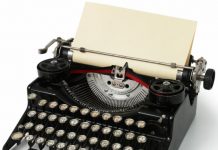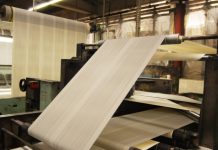 Sometimes scabrous British novelist Will Self has penned an illuminating piece in The Guardian on his writing approach, which could benefit new and self-published authors everywhere. It also could make a change in their sleeping habits. Because Self favors early morning writing, despite his proverbially debauched lifestyle, as the key to creativity.
Sometimes scabrous British novelist Will Self has penned an illuminating piece in The Guardian on his writing approach, which could benefit new and self-published authors everywhere. It also could make a change in their sleeping habits. Because Self favors early morning writing, despite his proverbially debauched lifestyle, as the key to creativity.
“I’ve always been a morning writer, and frankly I believe 99 percent of the difficulties novices experience are as a result of their unwillingness to do the same. Narrative structure, mise en scene, characterisation − you can’t get to grips with these problems unless you’ve put the words on the page,” says Self. “So, my rule is I don’t rise from my desk until I’ve done my allotted portion.” He also believes that “the dreaming and imagining faculties are closely related, such that wreathed in night-time visions I find it possible to suspend disbelief in the very act of making stuff up, which, in the cold light of day would seem utterly preposterous.”
As a rather more reassuring tip to the aspiring novelist, Self also talks about writing in Conrads. “When I began writing seriously I measured my word counts in ‘Conrads’, one Conrad being 800 words, which is what the master wrote daily – an output on which he was able to support a considerable establishment, including two housemaids and a chauffeur. Back in the 1990s I could manage two or even three Conrads in a morning, but with age (and possibly the increasing complexity of the work itself), my pace has slowed – and I now manage 1.25 Conrads. (My journalism word rate, by contrast, is 500 words per hour.)”
Now, a work rate of 800 words per day, no matter what it comes down to in terms of a modern domestic establishment, shouldn’t sound too frightful to any writer. (I managed four Conrads only last Sunday.) So budding authors ought to be encouraged. That said, Luddites may rejoice that Self still finds manual typewriting his key to productivity.
“I wrote all my early books on computers, but when broadband came along in 2004 I understood intuitively it was inimical to the novel, an art form that depends on the codex for its inception as well as its reception. So I shifted to writing on a manual typewriter − an Olivetti Lettera 22 used by my late mother, who was also a writer,” says Self. “The second draft entails me rekeying the text into a computer – which in turn explains why doing the first draft manually isn’t really that onerous; after all, if you know you’re going to have to rewrite a work entirely, you can afford to be a little more cavalier when you attack the blank page.” That isn’t necessarily the approach every modern writer should embrace – think of the expense in arcana like typewriter ribbon, for instance. But obviously, it works for one Self.

































[…] of cool dude. Mr Self — can he really be content to be described as scabrous — is quoted at TeleRead as attributing regular morning Conrads for his success as a writer. He can dash off 500 words an […]